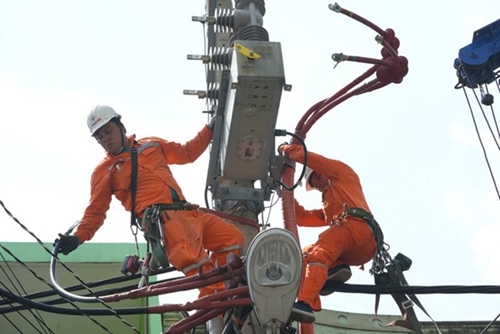The power source in the whole system has no more backup capacity, Nhan noted.
Large power sources including hydro-electricity and thermal power all have decreased, so the available capacity of the national and northern power systems is only about 42,000MW and 19,000MW in the afternoon peak, and 39,200 MW and 18,000MW in the evening peak, respectively.
    |
 |
|
(Photo for illustration: tuoitre.vn) |
Therefore, the EVN has to mobilize thermal power sources running on diesel oil (DO) and fuel oil (FO).
It has also implemented many solutions such as working with the Vietnam National Coal - Mineral Industries Holding Corporation Limited (Vinacomin), the Dong Bac Corporation, and the Vietnam Oil and Gas Group (Petrovietnam) to supply coal, gas and oil for power plants.
The group has negotiated with investors of wind and solar power projects that are eligible to generate electricity to the national grid, while coordinating with localities in enhancing economical and efficient use of electricity.
More efforts are being made to add new power sources, including negotiations with investors of transitional renewable energy plants. To date, 15 power purchase contracts have been completed with a total capacity of 1,150MW and a temporary price equal to 50% of the price bracket.
However, as of May 21, the EVN had only added 85MW of electricity from Trung Nam Thuan Nam solar power to the national grid, while other investors were having to finalize relevant legal regulations.
Meanwhile, it is negotiating to buy electricity from China via the 110kV Shengou - Mong Cai line in May, June and July with a capacity of 70MW, and soon completing procedures to sign the power purchase agreement.
The group has also boosted the import of power from Laos through the Nam Kong and Nam San hydropower plant clusters.
Source: VNA